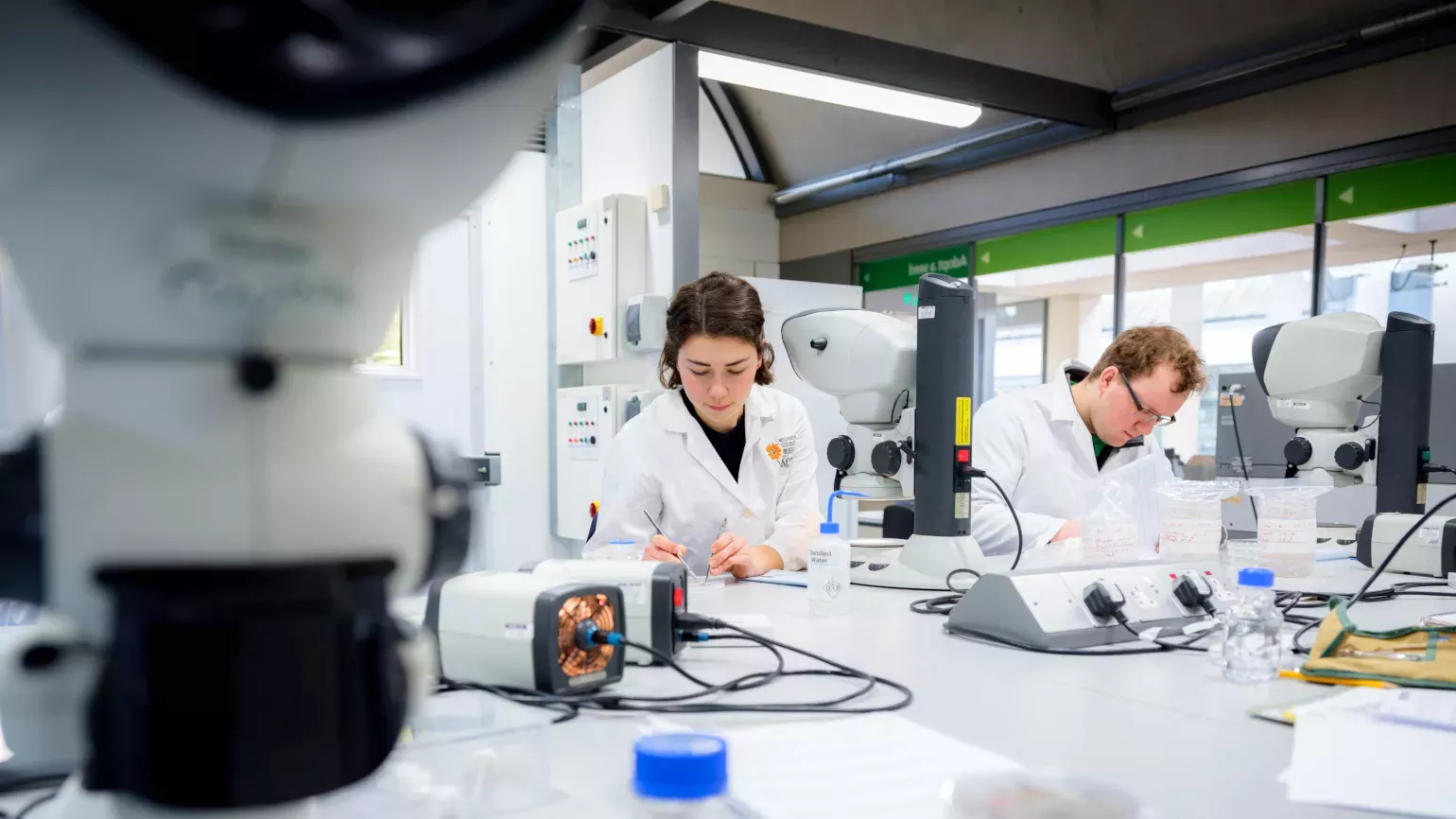Placements for PhD Students
We welcome PhD placement students to the Royal Botanic Gardens, Kew to learn from our experts and make real contributions to our work at Kew Gardens in London or Wakehurst in Sussex.

There are opportunities at Kew across a range of departments including, communications, public programmes, collections and science. Placements with Kew are a fantastic way to develop your skills, build your networks, and work with a renowned scientific and public-facing institution.
If you have the opportunity to take on a Professional Internship for PhD Students (PIPS), or any other externally funded placement or internship as part of your PhD, we’d love to hear from you no matter your discipline!
How does it work?
Placements are usually 3 months and there are various options for onsite, hybrid and remote working.
Occasionally, we advertise discrete, predefined projects that have a deadline for applications and are completed in a specified timeframe, which will be highlighted below.
Most often, though, we advertise areas of Kew that are open to hosting PhD students. Below you will find suggestions of placements that you could do at any time of the year.
There is sometimes subsidised onsite accommodation at Wakehurst but not at Kew.
Student stories
"I had a very positive experience where I complemented my scientific knowledge with communication skills. I learnt how to contextualise and communicate a scientific story to a broad audience and was able to contribute to two Read & Watch posts highlighting the brilliant research done at Kew. This experience was instrumental in making me a more well-rounded scientist. I highly recommend it!" Student from Imperial BBSRC DTP working with Kew’s Science Communication team
"I couldn’t have asked for a more inspirational, fulfilling, and transformative experience and I left with a huge sense of gratitude to have had this opportunity […].This opportunity has definitely helped to solidify my career intentions and I would advise future PIPS students to use this opportunity to do something completely different to what you are used to, to get a real sense of not just what you do want but also what you don't want in a future career." Student from NRPDTP working on Community Open Week 2023

What might I work on?
We encourage you to look for a placement that might be out of your comfort zone and different to what you usually do in your PhD research to get the most out of this experience. There is a range of possible opportunities across a range of departments at Kew with some offering things that you might not expect. Most opportunities are open to students from a variety of disciplines from science to arts and humanities. Placements have been created with the aim of giving experiences outside of academia, usually in a desk-based environment.
Below is the selection of teams who are open to hosting PhD placement students. Click on the links to see more information about the placements that are currently available.
If you are interested in applying for any of these placements, please send your CV and a 500-word statement of interest to sciencetraining@kew.org with the name of the placement and the name of your lead contact or supervisor from your university or DTP.
Please see our privacy policy. If you have any questions about a specific placement, please contact the relevant placement host.
Public Programmes
- Aims to communicate the work of Kew to diverse audiences and increase accessibility of the gardens to those who might not usually participate.
- There are opportunities to engage the public with science, horticulture and history at both Kew and Wakehurst sites.]
Communications and Policy work
- The Communications team is responsible for promoting Kew’s science and visitor attractions and is responsible for press and media relations, and external affairs.
- The Science Communications team coordinates internal and external communications related to Kew's research across a variety of media and platforms.
- The Policy team is responsible for advising government and stakeholders on international conventions (CBD and CITES).
Science
- Kew scientists are working collaboratively and globally, to understand and protect biodiversity and discover sustainable solutions to some of our biggest global challenges.
- There are opportunities to work at Kew Science with some of our teams from Accelerated Taxonomy, Trait Diversity and Function, Science Collections and the Millennium Seed Bank Partnerships.
- This work covers a broad range of projects including research, data analysis and machine learning, outreach, conservation strategies, and curation. This means that there are opportunities to work with science teams in a way that is unrelated to your PhD research.
Collections and interdisciplinary work
- Kew has over 8.5 million items botanical and mycological information, the largest collection in the world, across a range of different types including Economic Botany, Herbarium, Archives, Library and Illustrations.
Economic Botany - COMING SOON
Herbarium Curation - COMING SOON
Horticulture- Living Collections
- Opportunity to work with the living tree collections.
